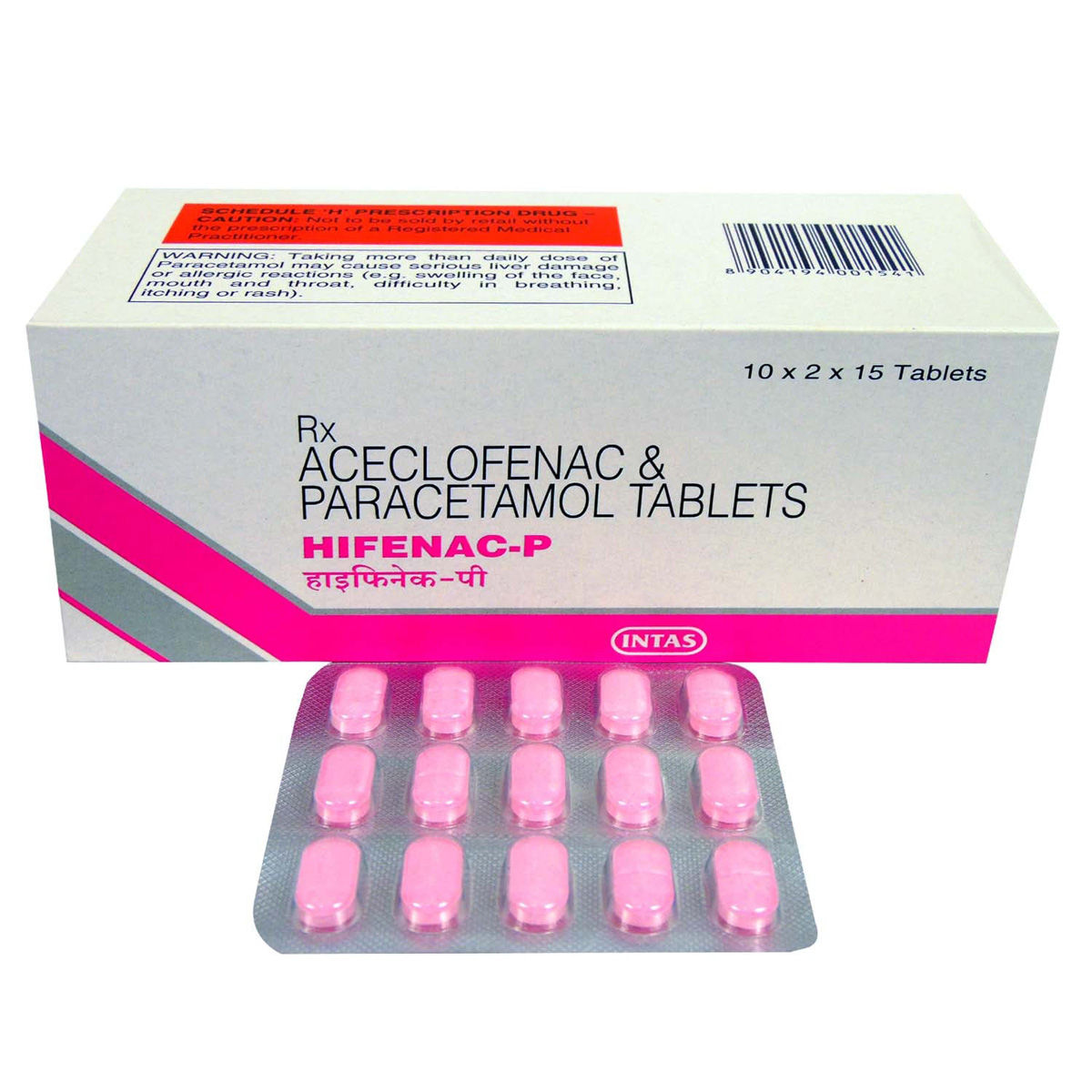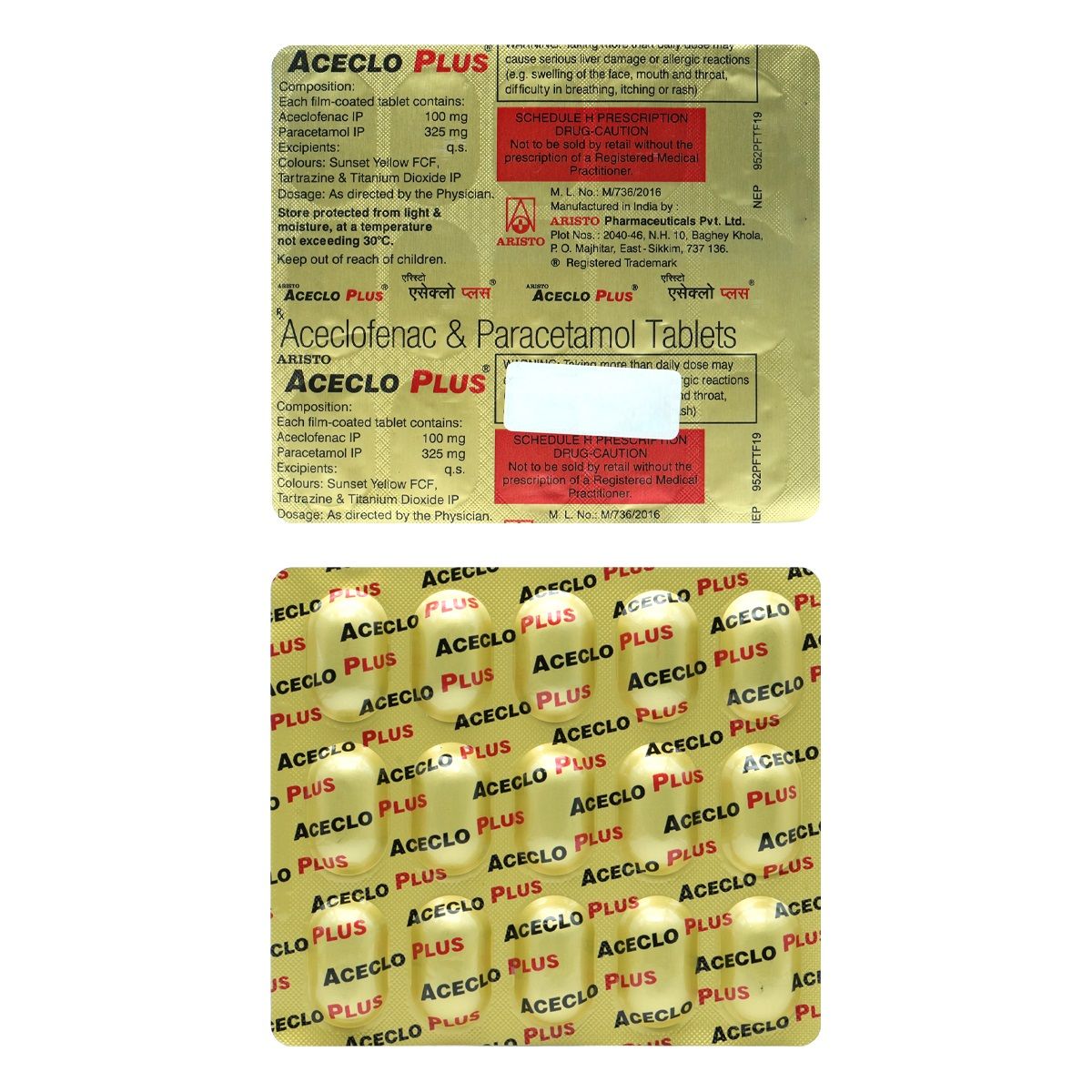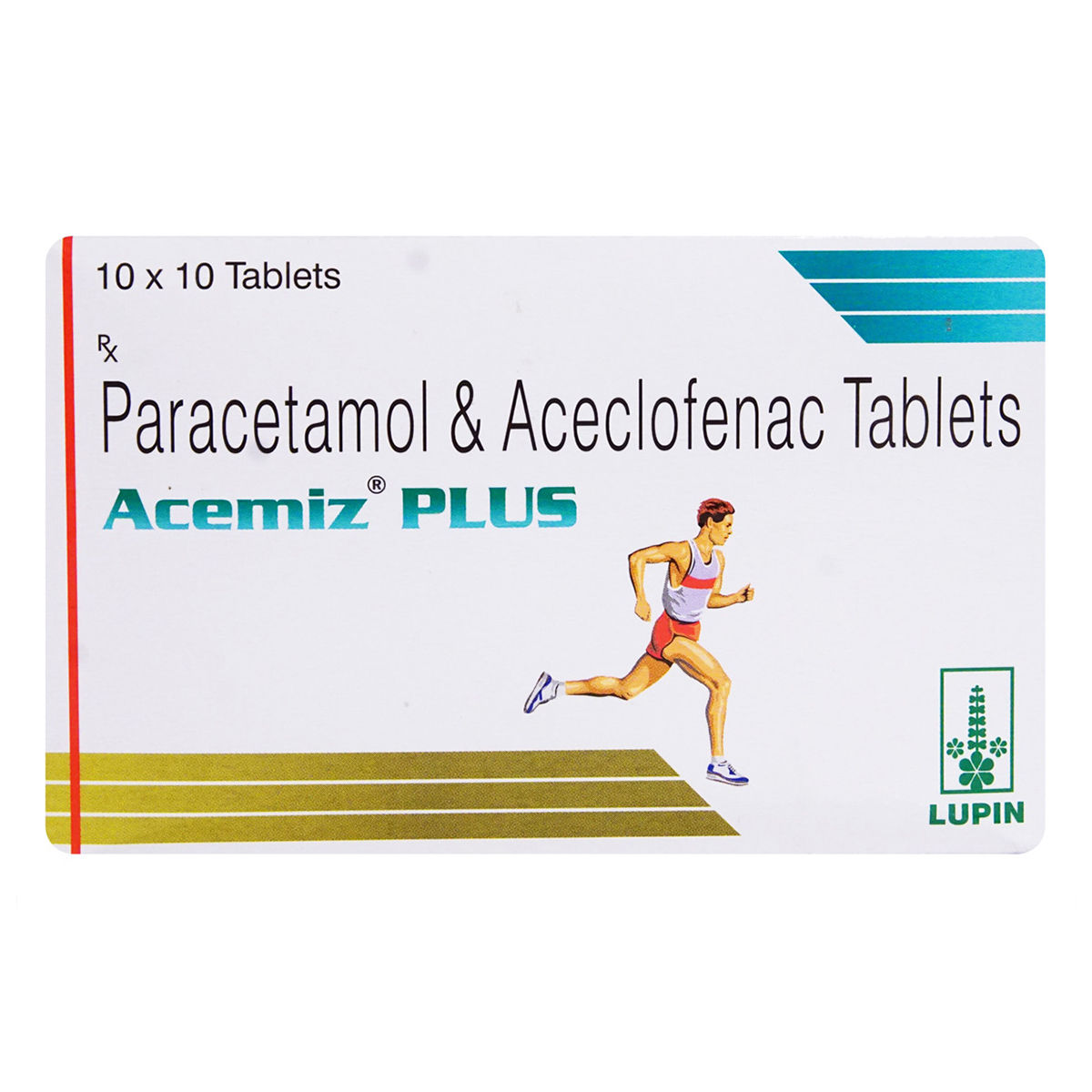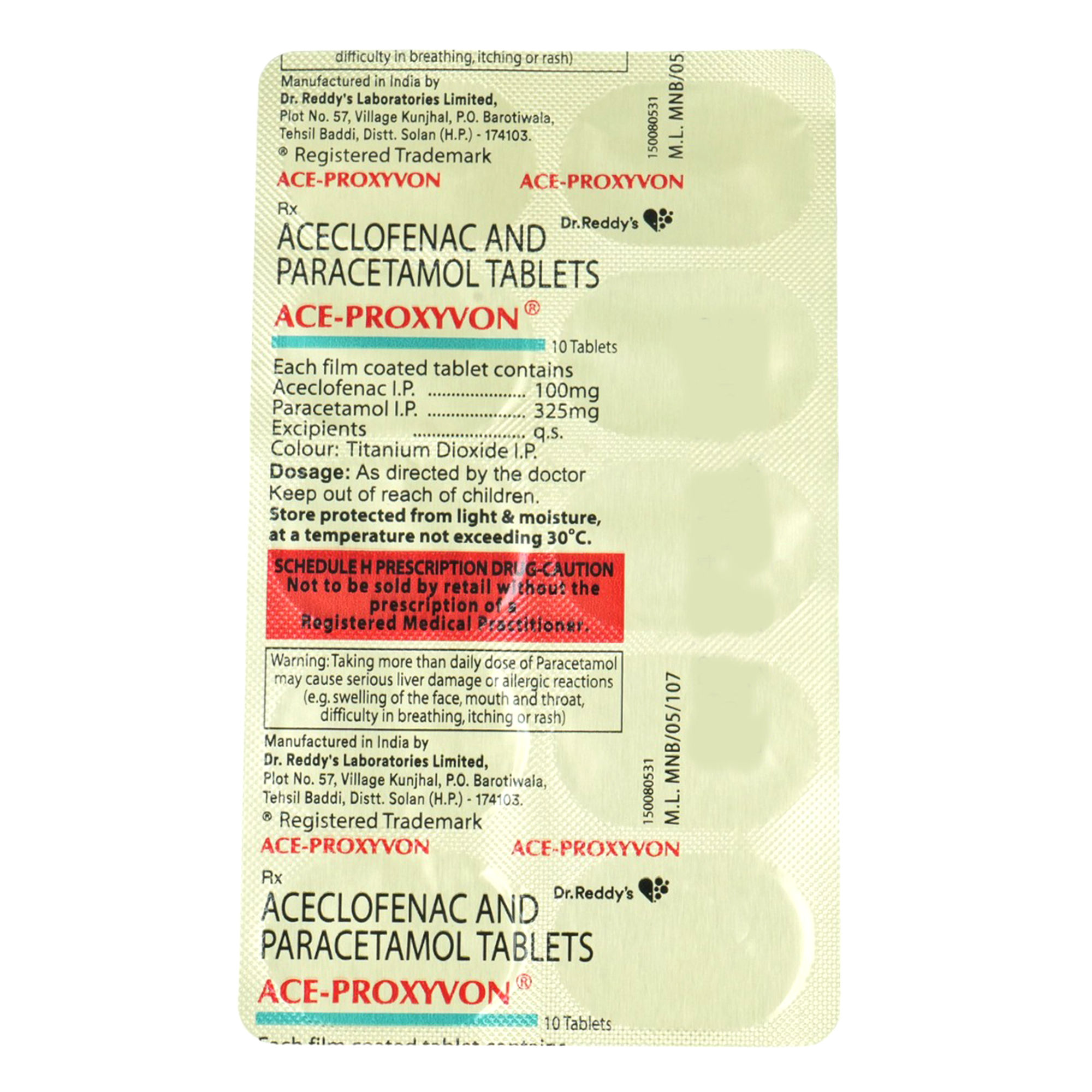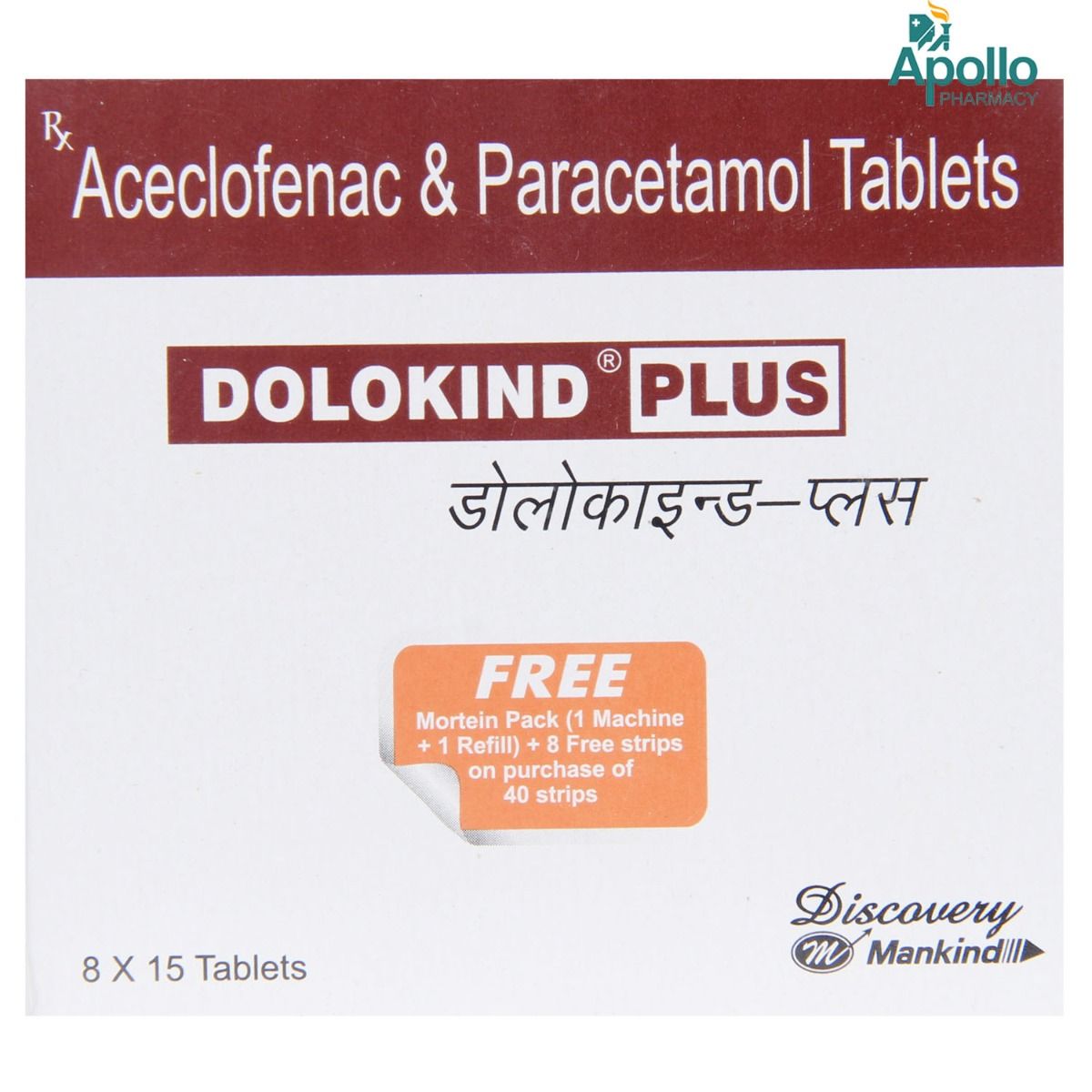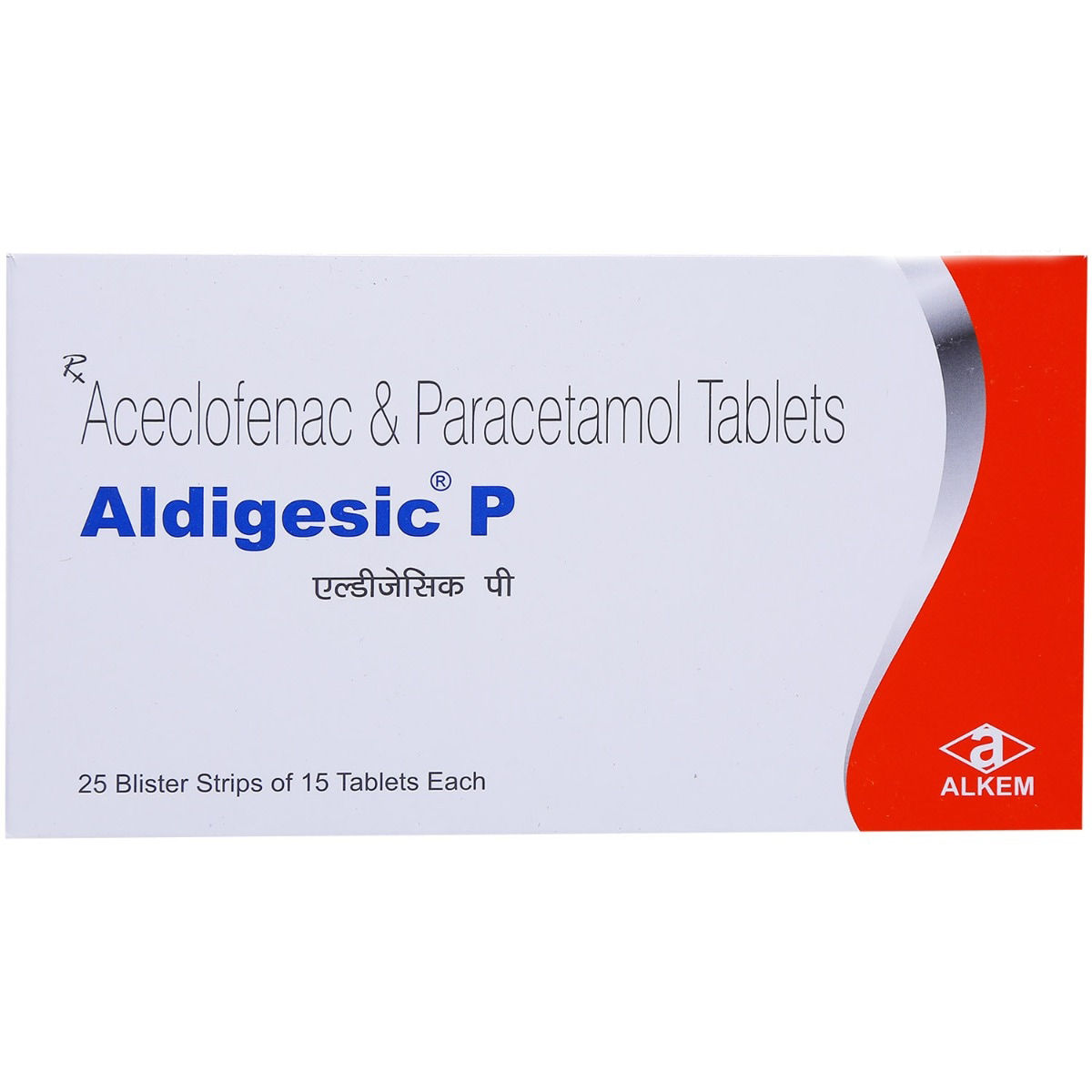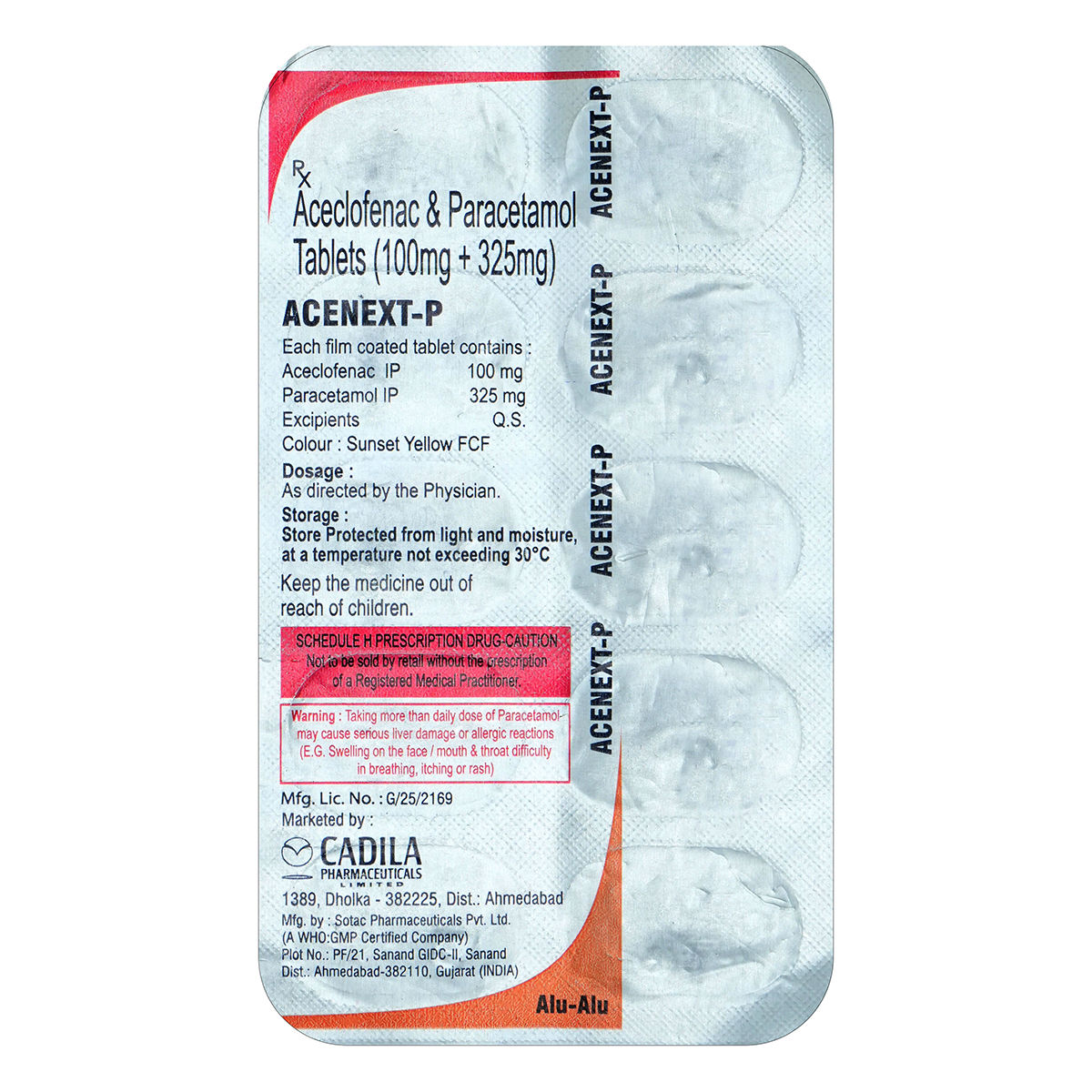Synid-Plus Tablet 10's
Synid-Plus Tablet is used to reduce pain and inflammation. It helps in relieving pain from conditions like headaches, mild migraine, muscle pain, dental pain, rheumatoid arthritis, ankylosing spondylitis, and osteoarthritis. It contains Aceclofenac and Paracetamol, which work by blocking the chemical messengers responsible for causing pain, inflammation, and fever. In some cases, it may cause side effects like dizziness, nausea, digestion problems (constipation, flatulence, diarrhoea) and skin reactions (like rashes and hives). Before taking this medicine, you should tell your doctor if you are allergic to any of its components or if you are pregnant/breastfeeding, and about all the medications you are taking and pre-existing medical conditions.
₹34.2*
MRP ₹38
10% off
₹32.3*
MRP ₹38
15% CB
₹5.7 cashback(15%)
Free Delivery
With Circle membership
(Inclusive of all Taxes)
This offer price is valid on orders above ₹800. Apply coupon PHARMA10/PHARMA18 (excluding restricted items)
Know Your Delivery Time
Provide Delivery Location

Available Offers
 Prescription drug
Prescription drugWhats That

Secure Payment

India's Most Trusted Pharmacy

Genuine Products
Composition :
Manufacturer/Marketer :
Consume Type :
Return Policy :
Expires on or after :
About Synid-Plus Tablet
Synid-Plus Tablet is used to reduce pain and inflammation. The pain is an unpleasant sensory and emotional experience associated with actual or potential tissue damage. Inflammation is a localized physical condition in which part of the body becomes reddened, swollen, hot and often painful, especially as a reaction to injury or infection.
Synid-Plus Tablet is composed of two medicines: Aceclofenac (pain reducer) and Paracetamol (fever reducer). Synid-Plus Tablet helps in relieving pain from conditions like headaches, mild migraine, muscle pain, dental pain, rheumatoid arthritis, ankylosing spondylitis, and osteoarthritis. Aceclofenac and Paracetamol both work by blocking the chemical messengers responsible for causing pain, inflammation, and fever.
Synid-Plus Tablet may cause side effects like dizziness, nausea (feeling sick), digestion problems (constipation, flatulence, diarrhoea) and skin reactions (like rashes and hives). Most of the side effects of Synid-Plus Tablet do not require medical attention and gradually resolve over time. However, if the side effects are persistent, reach out to your doctor.
Taking more than the daily prescribed dose of Synid-Plus Tablet may cause liver damage or allergic reactions like swelling of the mouth, face, throat, difficulty in breathing, skin rash, itching, gastrointestinal bleeding and/or ulcer. Use this medicine in the prescribed doses and seek immediate medical help if you experience such symptoms.
Uses of Synid-Plus Tablet
Directions for Use
Medicinal Benefits
Synid-Plus Tablet helps to reduce pain and inflammation caused by various complications or conditions. It significantly works on providing relief from pain for extended hours. It contains paracetamol, which is less irritant to the stomach than other painkillers. Hence, it is well tolerated by patients who have an allergy to aspirin or a risk of gastrointestinal bleeding or ulcer formation. Besides this, it does not affect bleeding time and also helps in reducing fever due to pain or swelling.
How Synid-Plus Tablet Works
Storage
Side Effects of Synid-Plus Tablet
- Dizziness
- Nausea
- Digestion problems (like constipation, flatulence, diarrhoea)
- Increased liver enzymes in the blood (diagnosed through liver function test)
What if I have taken an overdose of Synid-Plus Tablet
Drug Warnings
Taking more than the daily prescribed dose of Synid-Plus Tablet may cause liver damage or allergic reactions like swelling of the mouth, face, throat, difficulty in breathing, skin rash or itching. Most of the cases of liver injury are associated with the use of paracetamol. Gastrointestinal bleeding and ulcer formation are commonly observed with the use of Synid-Plus Tablet , so the doctor may prescribe you the lowest dose available. Do not take Synid-Plus Tablet if you have asthma or allergies to painkillers, heart, kidney and liver conditions. Synid-Plus Tablet should not be taken during pregnancy or by breastfeeding mothers as it may affect the baby.
Drug-Drug Interactions
Drug-Drug Interactions
Login/Sign Up
Co-administration of Atenolol with Synid-Plus Tablet 10's could increase the risk of low blood pressure.
How to manage the interaction:
Although there is a possible interaction between Atenolol and Synid-Plus Tablet 10's, you can take these medicines together if prescribed by a doctor. Consult a doctor if you experience excessive sweating, shortness of breath, palpitations, or chest discomfort. Do not discontinue any medications without consulting a doctor.
Co-administration of Synid-Plus Tablet 10's may decrease the excretion rate of Oxazepam which could result in a higher serum level.
How to manage the interaction:
Although there is a possible interaction between Oxazepam and Synid-Plus Tablet 10's, you can take these medicines together if prescribed by a doctor. Do not stop using any medications without a doctor's advice.
Co-administration of Synid-Plus Tablet 10's and Valdecoxib may increase the risk or severity of adverse effects.
How to manage the interaction:
Although there is a possible interaction between Synid-Plus Tablet 10's and Valdecoxib, you can take these medicines together if prescribed by a doctor. However, if the side effects worsen, please consult a doctor.
Co-administration of Mipomersen with Synid-Plus Tablet 10's may increase the risk or severity of liver injury.
How to manage the interaction:
There may be a possibility of interaction between Synid-Plus Tablet 10's and Mipomersen, but it can be taken if prescribed by a doctor. Do not stop using any medications without talking to a doctor.
Co-administration of Teriflunomide with Synid-Plus Tablet 10's may increase the risk or severity of Liver problems.
How to manage the interaction:
Taking Synid-Plus Tablet 10's with Teriflunomide together can possibly result in an interaction, but it can be taken if a doctor has advised it. Do not discontinue any medications without consulting a doctor.
Co-administration of Lomitapide and Synid-Plus Tablet 10's may increase the risk of severity of liver injury.
How to manage the interaction:
Although there is a possible interaction between Synid-Plus Tablet 10's and Lomitapide, you can take these medicines together if prescribed by a doctor. Do not stop using any medications without a doctor's advice.
Co-administration of ketamine and Synid-Plus Tablet 10's may decrease the effectiveness of Ketamine which could result in a higher blood level.
How to manage the interaction:
Although taking Ketamine and Synid-Plus Tablet 10's together can evidently cause an interaction, it can be taken if a doctor has suggested it. If you're feeling very sleepy or having trouble breathing, it's important to contact your doctor right away. Do not stop using any medications without a doctor's advice.
Co-administration of Synid-Plus Tablet 10's and Leflunomide may increase the risk of liver problems.
How to manage the interaction:
Although there is a possible interaction between Synid-Plus Tablet 10's and Leflunomide, they can be taken together if prescribed by a doctor. However, if you experience fever, chills, joint pain or swelling, unusual bleeding or bruising, skin rash, itching, less desire to eat, fatigue, nausea, vomiting, abdominal pain, or yellowing of the skin or eyes, contact a doctor immediately. Do not discontinue any medications without consulting a doctor.
Co-administration of Synid-Plus Tablet 10's and Ketoconazole may increase the risk of liver injury.
How to manage the interaction:
Although there is a possible interaction between Synid-Plus Tablet 10's and Ketoconazole, you can take these medicines together if prescribed by a doctor. However, if you have joint pain or swelling, fever, chills, unusual bleeding or bruising, skin rash, itching, over-tiredness, nausea, vomiting, loss of appetite, stomach pain, dark-colored urine, light-colored stools, and/or yellowing of the skin or eyes, contact a doctor immediately as these may be signs and symptoms of liver damage. Do not discontinue the medication without consulting a doctor.
Drug-Food Interactions
Drug-Food Interactions
Login/Sign Up
Diet & Lifestyle Advise
- Include more glucosamine, chondroitin sulphate, Vitamin D, and calcium-enriched supplements. Besides this, turmeric and fish oils can help in reducing inflammation in the tissue.
- Do not go for heavy exercise as it may increase your joint pain and arthritis. Instead, you can do stretching and low-impact aerobic exercises like walking on a treadmill, bike riding, and swimming. You can also strengthen your muscle strength by lifting light weights.
- In chronic arthritis or joint pain, try to include fish like salmon, trout, tuna, and sardines. These fishes are enriched with omega-3 fatty acids that have a minimum level of chemicals called cytokines, which ramp up inflammation.
- Your sitting posture is important, especially when you have pain and inflammation conditions. Try to sit as little as possible and only for a short time (10-15 min). Use back support like a rolled-up towel at the back of your curve to minimize pain. Keep your knees and hips at a right angle. Besides this, you can use a footrest if required.
Habit Forming
Therapeutic Class
Synid-Plus Tablet Substitute

Aquris Parafen Tablet 10's
by Others
₹7.50per tabletZerodol-P Tablet 10's
by Others
₹6.93per tabletHifenac-P Tablet 15's
by Others
₹7.23per tabletAceclo Plus Tablet 15's
by Others
₹6.30per tabletAcemiz Plus Tablet 10's
by Others
₹11.84per tablet
Product Substitutes
Alcohol
Unsafe
You are recommended not to consume alcohol along with Synid-Plus Tablet as it contains paracetamol which can together damage your liver severely.
Pregnancy
Caution
The safety of this medicine for use during pregnancy is not known. Hence, it is not recommended for use in pregnancy unless considered essential by your doctor.
Breast Feeding
Caution
Synid-Plus Tablet should not be used without consultation with your doctor if you are breast-feeding. It is not known if this medicine passes into breast milk. It is not recommended for use during breast-feeding unless considered essential by your doctor.
Driving
Caution
Synid-Plus Tablet usually causes dizziness, drowsiness and visual disturbances which may affect their ability to drive or operate machinery. Make sure you are not affected before driving or operating machinery.
Liver
Caution
Synid-Plus Tablet to be taken with caution, especially if you have a history of Liver diseases/conditions. The dose may have to be adjusted by your doctor.
Kidney
Caution
Synid-Plus Tablet to be taken with caution, especially if you have a history of Kidney diseases/conditions. The dose may have to be adjusted by your doctor.
Children
Unsafe
The safety and efficacy of Synid-Plus Tablet in children have not been established. Synid-Plus Tablet is not recommended in children.
FAQs
Country of origin
Manufacturer/Marketer address
Disclaimer
Author Details
We provide you with authentic, trustworthy and relevant information









